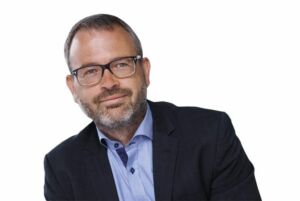Opinion
The Valley of Life: What’s for breakfast, culture asked
Søren Bregenholt
This article is more than 5 years old.

Strategy is everything (Photo: pixabay)
Strategy, you may think. And you are right. Danish life science has come a long way since the beginning of the millennium business-wise and, even more importantly in the long run, culture-wise. Along the way we also got a strategy.
Crucial to society
The value of Danish life science exports surpassed 100 billion kroner a couple of years ago, while the number of people employed in the sector continues to grow.
Together, this has generated an increase in national income through revenues, salaries and taxes to the point that society has grown to depend on the life science sector as a crucial source of income.
While the short-term metrics of this success are clear to most, many decision-makers fail to realise to what extent continued investment in education and innovation are the leading metrics of future success.
Youthful drive
In the future, we cannot rely on innovation and growth to come primarily from the big well-established companies – primarily from their senior executives and scientists.
A very significant and probably growing part of future innovation and growth will – hopefully – be generated by some of the hundreds of Danish life science start-ups and SMEs, along with the young, bright people they already do employ and will employ in the future.
Success in life science and any other knowledge-driven industry is clearly based on more than money, laboratories and good intentions. Reviewing the last 20 years and then attempting to look forward, I would emphasise one major change that in my view is the most important of all.
This is the change of culture and mindset among young life science graduates – the individuals who are the future of the industry.
Substantial optimism
Every year, we hatch new generations of life science students – many of whom have an impressive entrepreneurial spirit and global outlook.
When looking at the number of spin-outs from Technical University of Denmark and other universities in the region, or when following the power and diligence of an organisation such as the student-driven life science organisation Synapse, there is reason for substantial optimism.
In some cases, we even see energetic students with CEO titles, which testifies to a mindset and level of ambition rarely seen 20 years ago.
The US management consultant, educator, and author of several books, Peter Drucker, made us aware that “culture eats strategy for breakfast”.
It bodes well for the implementation of the national life science strategy that we have been able to change the culture in Danish life science over the last two decades, resulting in a new generation of innovative, impatient and curious professionals.

About
Søren Bregenholt
As the chairman of the Medicon Valley Alliance – the gold-labelled Danish-Swedish life science cluster organisation – Søren will address current trends and challenges in the sector.










































